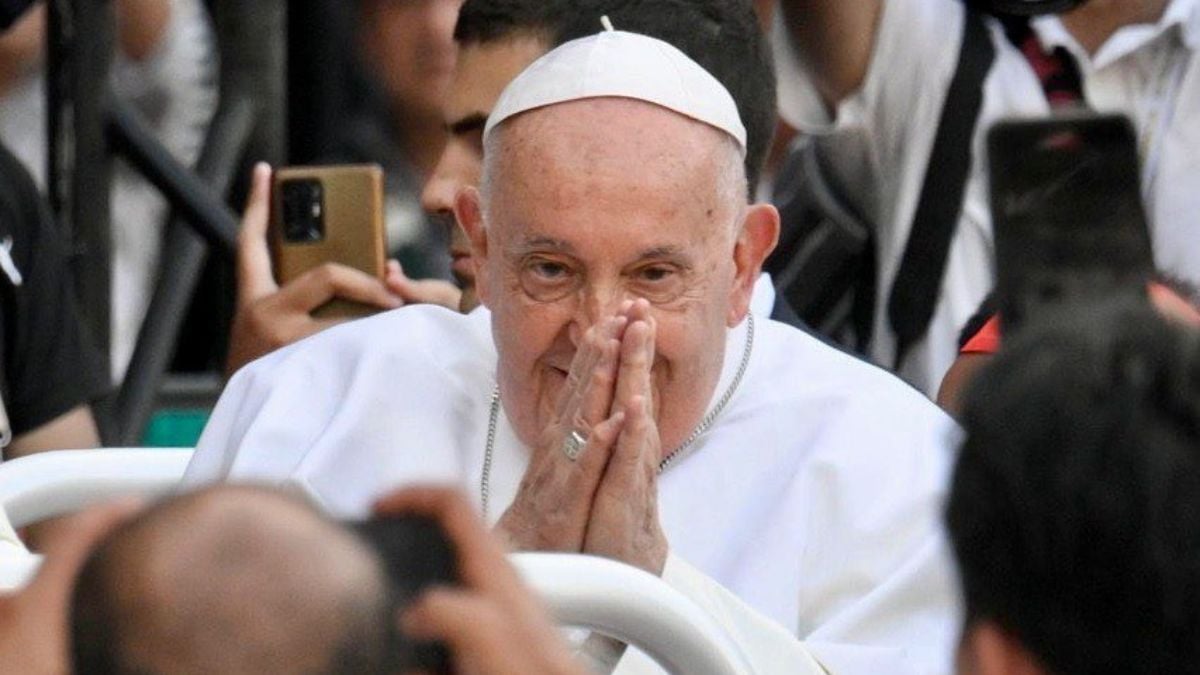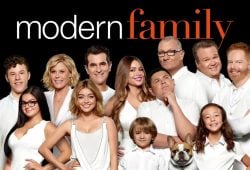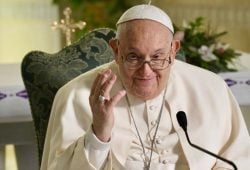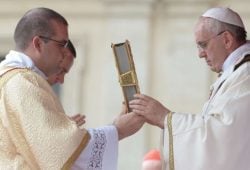
The death of Pope Francis sparked a surge in global interest and online searches, particularly around one pressing question: “Who will be the next Pope?” In the hours following the Vatican’s announcement, Google Trends recorded a sharp spike in queries related to the papal succession, reflecting the curiosity and anticipation surrounding the upcoming Conclave. As millions of Catholics and observers around the world turn their attention to Rome, the question of who will succeed Francis has become one of the most searched and discussed topics across digital platforms.
The death of Pope Francis on April 21, 2025, marked the end of a transformative papacy that brought bold reforms and global conversations on migration, inclusion, and climate change. With his passing, the world turns its attention to the Papal Conclave, the centuries-old process through which the next Bishop of Rome will be elected.
According to Church tradition, the Conclave will begin between 15 and 20 days after the pope’s death. The 138 eligible cardinal-electors—those under the age of 80—will gather in the Sistine Chapel under strict isolation to vote in secrecy until a candidate secures at least two-thirds of the votes.
Each voting round, or “scrutiny,” consists of cardinals writing the name of their chosen candidate on a ballot. The votes are counted and verified, and the ballots are burned. If no Pope is elected after a round, the smoke released is black; when a new Pope is chosen, white smoke signals the decision to the world.
ALSO READ. What did Pope Francis die of? What we know about his cause of death
Who are the leading candidates to become the next Pope?
The question at the heart of the Conclave is not only who will lead, but also what direction the Church will take. Will the cardinals seek continuity with Francis’ progressive agenda or pivot toward a more traditionalist papacy? Below, we explore the main contenders—those frequently mentioned by Vatican watchers and Church insiders.
Pietro Parolin from Italy
Cardinal Pietro Parolin, 70, Italy’s Secretary of State and one of the Church’s most powerful figures, is widely seen as a frontrunner. Known for his diplomatic acumen and moderate theology, Parolin is viewed as a candidate of consensus. He has played a key role in Vatican-China relations, and is credited with maintaining internal cohesion during Francis’ most controversial reforms.
Despite his proximity to power, Parolin is not seen as overly ideological. His moderate stance, capacity for negotiation, and wide network of allies could make him an ideal candidate to bridge divides within the College of Cardinals.
Will the next Pope be from Asia? Luis Antonio Tagle
Cardinal Luis Antonio Tagle, 67, from the Philippines, is another leading name. Should he be elected, he would become the first Asian Pope. Tagle is often described as deeply pastoral, emotionally intelligent, and in tune with contemporary challenges.
Known for his inclusive views on issues like divorce and the LGBTQ+ community, Tagle is seen as a spiritual heir to Francis. “He has a strong connection with the faithful, but some cardinals might question his managerial skills,” Vatican analyst Inés San Martín points out. His relatively young age could also signal a lengthy papacy, which might make some voters cautious.
Matteo Zuppi from Italy
Matteo Zuppi, 69, archbishop of Bologna and president of the Italian Episcopal Conference, is another strong contender aligned with Francis’ inclusive vision. A skilled diplomat involved in peace negotiations and a vocal advocate for LGBTQ+ inclusion, Zuppi represents the pastoral and pragmatic side of the Church.
His recent missions to Ukraine and involvement in ecumenical dialogue have elevated his profile. However, his close ties to Francis could alienate cardinals hoping to see a shift in papal tone.
Peter Erdö from Hungary
On the other end of the ideological spectrum is Cardinal Peter Erdö, 72, of Hungary. A staunch traditionalist, Erdö has long defended the Church’s teachings on marriage and sexuality. As former president of the Council of European Bishops’ Conferences, Erdö’s authority within Europe is well-established.
Vatican journalist Edward Pentin has pointed out that Erdö’s conservative stance could appeal to cardinals wary of rapid reforms, but he could also spark division among those seeking continuity with Francis’ more inclusive papacy.
Are African cardinals serious contenders?
Observers have long speculated that Africa could produce the next pope. Two African cardinals stand out:
Fridolin Ambongo Besungu – Democratic Republic of Congo
At 65, Ambongo is the president of the Symposium of Episcopal Conferences of Africa and Madagascar. A Capuchin friar and outspoken conservative, he revoked the implementation of “Fiducia supplicans” (which allowed blessings of same-sex couples) in Africa. “He’s conservative—but in an African context, which is not the same as European conservatism,” says San Martín.
Peter Ebere Okpaleke – Nigeria
At 62, Okpaleke brings a compelling pastoral story. Appointed by Benedict XVI, he was blocked from serving in his home diocese until Pope Francis intervened. Known as moderate and pastoral, he could appeal to those seeking a balance between tradition and openness.
Charles Maung Bo from Myanmar
Charles Maung Bo, 76, from Myanmar, has spent years advocating for peace amid brutal military repression. Ordained in 1976 and named cardinal in 2015 by Pope Francis, Bo led the Federation of Asian Bishops’ Conferences and is a staunch critic of political violence.
His extensive experience in leading the Church in a conflict-ridden region—and his commitment to dialogue and reconciliation—makes him a symbolic and diplomatic figure with international appeal.
Pierbattista Pizzaballa from Jerusalem
At 60, Pierbattista Pizzaballa, the Latin Patriarch of Jerusalem, is a rising star. Though Italian by birth, his missionary heart and deep involvement in Middle East diplomacy set him apart. “He’s an Italian, but with a global, missionary mindset,” says San Martín.
His leadership during the escalation of religious tensions and his care for Christian minorities in the region could make him a compelling choice for a Church navigating global instability.
Are there candidates from Latin America?
Despite Pope Francis’ Argentine roots, analysts suggest it’s unlikely that another Latin American will be chosen immediately. Still, four Argentine cardinals are eligible to vote and remain figures of interest:
- Ángel Sixto Rossi – Jesuit and social justice advocate, known for grassroots work.
- Mario Aurelio Poli – Former Archbishop of Buenos Aires; a polarizing figure but respected for interreligious dialogue.
- Vicente Bokalic Iglic – Active in pastoral work in northern Argentina, elevated to cardinal in 2024.
- Víctor Manuel Fernández (“Tucho”) – Prefect of the Dicastery for the Doctrine of the Faith, close to Francis and progressive on same-sex blessings.
While all four have credentials, their candidacies are seen as symbolic rather than viable, largely due to regional fatigue.
Anders Arborelius
Cardinal Anders Arborelius, 75, is Sweden’s first-ever cardinal. A convert to Catholicism, former Carmelite monk, and outspoken supporter of migrants, Arborelius represents the minority Catholic experience in secular Europe.
In 2017, Pope Francis elevated him in an effort to reach out to smaller Catholic populations. Arborelius supports women’s greater involvement in the Church but opposes the blessing of same-sex couples, positioning him in a nuanced center.
José Omella from Spain
At 79, Cardinal Juan José Omella, Archbishop of Barcelona, just barely qualifies for the Conclave. Appointed by Francis, he is known for humility and progressivism within the often conservative Spanish Church.
Omella faced intense scrutiny during his time as president of the Spanish Episcopal Conference, especially after a 2023 report estimated that over 200,000 minors had been sexually abused by clergy. Despite his efforts to apologize, critics claim he downplayed the scale.
What’s next for the Catholic Church?
The choice of the next pope is more than symbolic—it will define the spiritual and political path of the Church for years, if not decades. The cardinals face a historic decision: embrace continuity with the Francis era, or mark a shift toward tradition and internal order.
Regardless of who is elected, the new pontiff will inherit a complex global Church grappling with internal reforms, moral debates, and a changing world.
As Edward Pentin puts it in his book The Next Pope: “The choice will reveal not just who will lead the Church, but what the Church is willing to become.”










